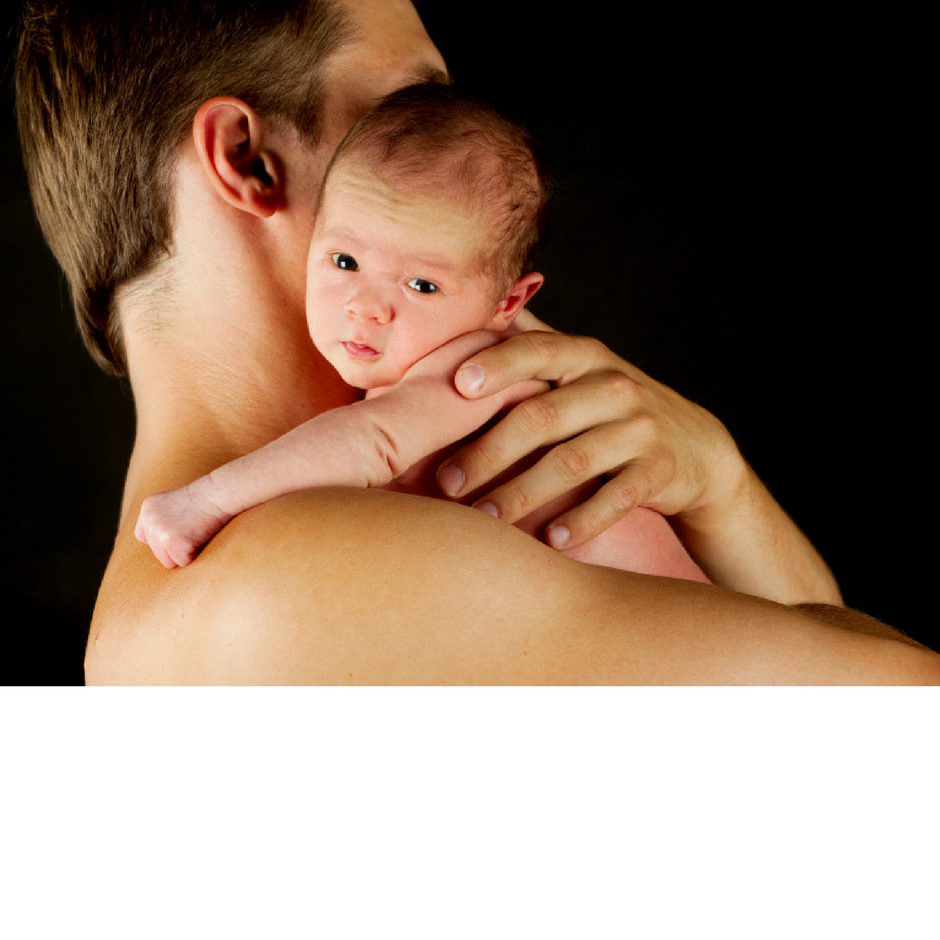|
"I never expected to be flooded with so many emotions". "I feel intensely protective and utterly fearful". "I feel helpless and sometimes, useless". "I have this constant worry that something bad is going to happen". "I was traumatised from seeing my partner in labour, but I knew I had to be strong for her". "Work seems irrelevant but I feel a pressure to perform because my family is depending on me". "I don't know who I am anymore". "What's happened to my wife?" "I feel exhausted all the time". These are just some of the thoughts and feelings men have shared in the therapy rooms of the Antenatal & Postnatal Psychology Network. Depression, anxiety and stress is common in new dads, but the focus is often on new mums. This can mean that dads feel unjustified in seeking help, and worse still, they feel like seeking help in some way implies weakness. New parenthood is a developmental stage (just like toddlerhood, adolescence, adulthood). With it comes change, uncertainty, new learning, and a need for re-definition (both for the self, and for the couple relationship). Struggling is par for the course. New parenthood forces people to acknowledge the ways in which they were parented. This can be confronting, and can present challenges for new parents, especially when their parenting backgrounds were difficult, traumatic, or significantly different from that of their partners'. Some men feel paralysed with fear about parenting like their own parents, but don't know how to do things differently, especially in the toddler years. Parenting support and guidance can make an enormous difference. Some men struggle because their partners become unwell in pregnancy or the postnatal period (with depression, anxiety, stress or in rare cases, psychosis). We often see men who have 'held the fort' while their partners were being treated, who then 'hit the wall' themselves - buckling under the unexpected pressure of taking care of their partners and babies, while trying to function at work. Speaking to a mental health professional is about resourcing yourself to better manage in this new life role. Arguably, the most important role of your life. As the Royals William, Harry and Kate discuss in this youtube video, "talking is medicine". www.youtube.com/watch?v=45RqUmxDXiY If you are struggling as a new dad, you can contact the phone counsellors at PANDA on 1300 726 306, see your GP, or seek the help of a psychologist. You may have a work Employee Assistance Program (EAP) that you could access. Centre of Perinatal Excellence (COPE) offers free emails to new dads (synced with the stage of fatherhood they are at), with trustworthy and supportive insights, strategies and advice. Dads can sign up for their emails here: www.cope.org.au/readytocope/ If you're interested in reading quality parenting articles (curated by a Clinical Psychologist), you can follow the Facebook Page of the Antenatal & Postnatal Psychology Network. Stay informed about evidence-based parenting approaches that support you through the challenges of parenthood (especially through the toddler years). You could also follow Dr Matthew Roberts's Town Hall Dads Facebook page - dedicated to fathers. Written by Dr Renée Miller Principal Clinical Psychologist Antenatal & Postnatal Psychology Network
The pressure of this can feel enormous. Men can feel that they shouldn't talk about their feelings because their partners/wives need them to be supportive. Juggling work demands, and being needed at home can be a source of stress, and can lead to feelings of inadequacy in both domains.
Ideal communication within a couple involves each spouse being able to express their feelings in a way that does not involve defensive or competitive responses. That each person in the couple is empathic and supportive of the other. This comes from validating the other person's experience (by really trying to understand it), without jumping to a 'fix-it' solution, without dismissing the person's feelings, and without interrupting with one's own agenda. Often, just having a space to be heard can help each person move through their feelings, and can strengthen the support and care of one another. If you are concerned that your partner/husband is struggling with stress, anxiety or depression, help is available, and is NOT a sign of weakness. This link (from the Raising Children Network) outlines the symptoms of postnatal depression (and anxiety) in men. There is also an excellent video about the experience of new parenting among dads. A great watch for all new dads! More information is available for dads at Beyond Blue.
What is my Role?
Some fathers question their roles in the early weeks and months, when typically mothers are the primary caregivers. As a new father it’s easy to feel a bit left out. However, research tells us that fathers’ relationships with their newborns make a significant impact right from birth. Actually, it starts long before birth, because babies begin to recognise their father’s voice at around 22 weeks of pregnancy. So when that bump starts to grow, it’s time to get talking. The most important thing dads can do for their newborns is to simply spend time with them – cuddling, rocking, talking, singing, and settling. Getting to know each other in a hands-on way is good for everyone. For inexperienced dads, on the job training is the best confidence and relationship builder of all. And the benefits for babies are vast. Several studies suggest the quality and quantity of baby-father involvement directly impacts language development and children’s sense of security growing up. There is also research showing that babies with strong attachments to their dads tend to have fewer behavioural problems later on. Not surprisingly, research also tells us that when mothers view their partners as competent - when they provide encouragement, and believe that parenting is a joint venture - men are more likely to be involved and value their roles as fathers. The key is mothers viewing their partners as competent. This is an issue many couples struggle with, and it comes up regularly in my work with new parents. Because mothers tend to spend more time with their newborns than their partners do, they clock up many more practice opportunities, and can feel that the way they have learnt to do things is the only way. So whether it’s changing nappies, settling a fussy baby, or managing the bath routine, dads can easily get left behind in the skill development stakes. An all too frequent result can be mums hovering on the sidelines offering unsolicited advice, or worse, taking over and doing it ‘properly’ themselves. The result? Dads can feel inadequate, resentful, and less motivated to try the next time. The impact of not letting dads learn on the job can be mums feeling unsupported. Where has my relationship gone? Becoming parents calls for huge adjustments in relationships. Changes in roles, workloads and finances, not to mention the sheer exhaustion of caring for a baby. These pressures can impact even rock solid partnerships. Worries about how a baby may or has changed their relationship are among the most frequent concerns voiced to me by fathers. Some fathers experience feelings of helplessness as they watch their partners overwhelmed by tiredness, or having difficulties breastfeeding. Some women experience postnatal depression, and dads often feel at a loss as to how to ‘fix it’, feeling inadequate that they are not being able to make everything OK. For other dads, it’s the loss of emotional connection that has been chipped away by the constant tension of tiredness and frayed patience. They can feel like they’ve lost their best friend amidst the unfamiliarity and daily grind early parenthood can bring. Some fathers talk about feeling in competition with their babies - for time, attention, and affection. Even while understanding their partner’s all-encompassing focus on their baby, dads can feel invisible or fearful that there’s not enough love to go around. The reality of course, is that the birth of a baby can test even the strongest relationships. Even good relationships can stumble under the weight of it all. But the good news is that the overwhelming majority tend to bounce back again once everyone is getting more sleep, things settle down, and issues like sharing the workload are resolved. Remember, parenting is a marathon, not a sprint. It takes time and practice for both of you to adjust to being mum and dad, to learn the ropes, and to find space in there for each other. Here are some points to consider: · Communicate with each other. It’s a vital ingredient in sharing your worries and doubts, asking for support, and working as a team · Practice empathy which means being open to each other’s experiences and feelings, especially the ones that are different to yours · Avoid competing about who has it tougher – nobody wins this one and it’s a certain resentment builder · Seek professional support if worries become too big, anxiety or low mood become habitual states, or you need help adjusting to the change. Remember, dads experience postnatal depression and anxiety too. This post was written by Dr Karola Belton Clinical Psychologist Antenatal & Postnatal Psychology Network |
AuthorPosted by Dr Renée Miller Topics
All
|
|
We acknowledge and pay respects to the Elders and Traditional Owners of the land on which our psychologists practise.




 RSS Feed
RSS Feed

